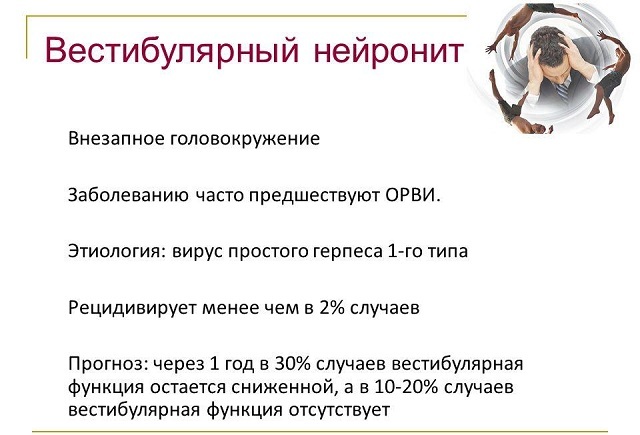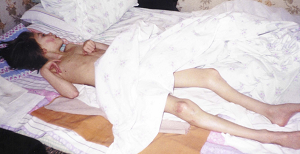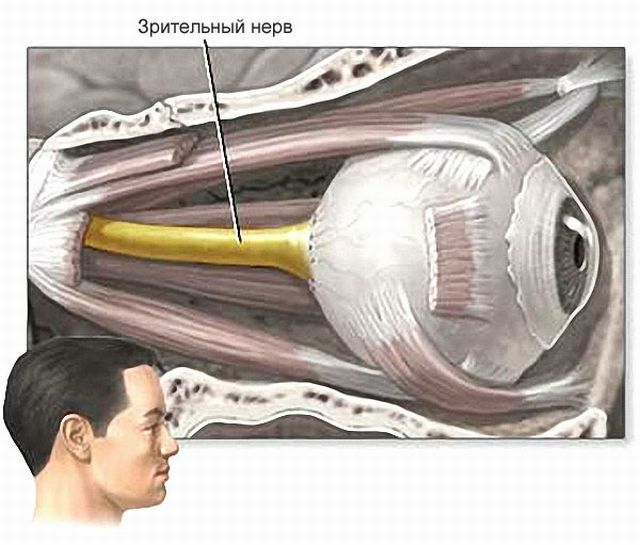 Residual cerebral organic insufficiency( RCON) is a pathology that is the result of abnormalities in the child's nervous system that developed either in the womb or after birth.
Residual cerebral organic insufficiency( RCON) is a pathology that is the result of abnormalities in the child's nervous system that developed either in the womb or after birth.
This is due to the defeat of individual parts of the brain, which in turn is expressed in symptoms that complicate the process of socialization of the child and limit his physical abilities.
The essence and etiology of the RCS
Residual cerebrovascular insufficiency( RHC) is considered as a residual manifestation arising from the lesion of the central nervous system. This can occur in the perinatal( perinatal), birth or infant period.
Absolutely accurate justification of the causes of such pathology as cerebral insufficiency, official medicine can not provide.
However, there are risk factors that increase the risk of developing the RCS.These include:
- late pregnancy( the age of a woman is 40 years or more);
- infection of the future mother with one or another virus( especially if it occurred in the first trimester, when the developing fetus is most vulnerable);
- stay pregnant in adverse environmental conditions;
- stay pregnant woman in a state of constant stress or depression;
- heavy physical labor during pregnancy;
- attempts at abortion;
- premature delivery;
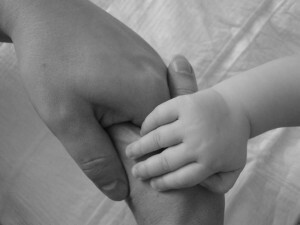
- abuse of a future mother by alcohol, taking drugs, smoking;
- detachment of the placenta, which provokes a violation of cerebral circulation and oxygen starvation of the fetus;
- traumatizing the child during childbirth;
- head trauma received by a child after birth;
- introduction into the mother's body of the drug for the effect of anesthesia in the course of surgical interventions, including - in cesarean section;
- immunological incompatibility of the mother and the child she is carrying.
Cerebral insufficiency syndrome can also manifest as a hereditary pathology.
A child neurologist can diagnose such a deviation. If you do not begin treatment of the child at an early age, the pathology will progress, and the severity of the symptoms will become more vivid. It is not easy to deal with the RNC.The child will need not only medical help, but also support from parents, teachers, a psychologist.
Manifestations of cerebral insufficiency in children
The clinical picture of the RCS and its severity depends on the localization of the affected area of the brain.
Residual cerebral insufficiency in children is expressed in the following symptoms:
- emotional instability, the child is too irritable, moody, his mood changes at lightning speed, parents often overlook this symptom, writing off it on the features of age.
- fast fatigue, which occurs even with minor loads, including - intellectual.
- the child creaks in his sleep with his teeth, often wakes up.
- passivity, drowsiness, complaints of headaches and weakness;
- sensitivity of the child to changes in weather conditions, that is, meteorological dependence, children have jumps in blood pressure, increased heart rate, and even fainting;
- non-standard mimic manifestations: jittery eyelids and lips, frequent blinking, twitching of shoulders;
- nervous tic;
- intolerance of noises, loud and sharp sounds, too bright light;
- intolerance of travel in any form of transport, the child feels nausea until vomiting, faintness;
- The limbs of a child with a diagnosis of RCON are often cold, no matter how warm it is in the room or on the street, the skin can become a marble shade.
 Separately it is necessary to note motor disturbances, as a bright symptom of cerebral insufficiency. They can be expressed either in inhibition, or, conversely, in impulsivity, hyperactivity.
Separately it is necessary to note motor disturbances, as a bright symptom of cerebral insufficiency. They can be expressed either in inhibition, or, conversely, in impulsivity, hyperactivity.
The first mentioned state is manifested in passivity, slowness, rapid fatigue, the second - in restlessness, excitability, the need for active pastime. Hyperactive children are difficult to attract to quiet activities: even putting them to sleep is hard work.
A child in school age can be suspected if he can not copy individual elements according to the provided sample, skips letters or entire syllables during reading.
In addition, there are also external signs of cerebral insufficiency in the child. This:
- excessively advanced forward upper jaw;
- skull deformities;
- wide-set eyes.
Children with RNC often fall into depression, while behaving aggressively, and also arrange hysterics. They have a bad appetite. Sometimes such phenomena as increased sweating, seizures, and chills can occur.
Consequences of uncontrolled development of
pathology. If the syndrome of cerebral insufficiency is not treated in a complex way, this can subsequently be expressed in such  complications:
complications:
- delayed development of the speech device;
- difficulty in developing the skills of reading and writing, accounts;
- articulatory abnormalities;
- is an easily developing dependence on toxic substances and alcohol.
Because of the slow process of mastering the speech skills, the child will have difficulties of a communicative nature, and because of deviations in behavior, it will not be easy for him to join the collective. As a result, situations will arise-provocateurs, who tend to depress the child, become withdrawn.
Diagnosis of abnormality and modern treatment
Diagnostic examinations of a child with suspected cerebral insufficiency should be aimed at determining the nature and etiology of the deviation.
In this case, the following clinical methods are used:
- Electroencephalography of the brain .This is a sensitive method of studying the work of the brain based on the study of
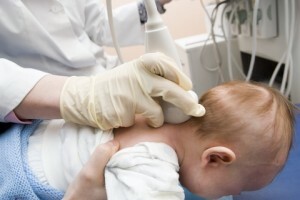 electrical impulses that originate from its individual areas. The procedure is characterized by almost complete absence of contraindications to the procedure.
electrical impulses that originate from its individual areas. The procedure is characterized by almost complete absence of contraindications to the procedure. - Echoencephalography .The brain is examined with the help of sound waves, which are reflected from the surfaces of the meninges, skull bones, soft covers of the head. Thanks to this procedure, it is possible to identify pathological changes or processes in the structure of the brain.
- Reoencephalography of cerebral vessels .The procedure allows you to assess the state of blood circulation and the quality of blood flow through the main vessels.
Of course, in addition to the listed methods of diagnosis, the child needs an examination of an experienced neurologist.
Once the diagnosis is determined, the specialist will prescribe adequate treatment. Its complex includes such events:
- Drug therapy .In this case, the reception of amino acids( in particular, glycine, lecithin, folic and glutamic acids), hepatoprotectors, antispasmodics, as well as indirect antihypoxants - substances that promote saturation of the body with oxygen and reduce the need for it. In addition, in the RCN take nootropic drugs that have a neurotrophic and neuroprotective effect directly on the central nervous system. Thanks to this, the processes of tissue metabolism are normalized.
- Vitaminotherapy .Particular emphasis is placed on vitamins B6 and B11.
- Transcranial Micropolarization .This procedure has a therapeutic effect on the nerve cells of the brain.
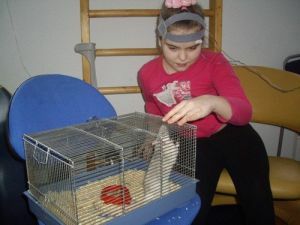 This is due to the use of a constant current of minimum force. The benefit of the procedure is that there is a stimulation of the development of nerve tissue and the creation of new connections between the cells. When carrying out transcranial micro-polarization, the child is put on the head a special cap with wires. The procedure does not deliver any unpleasant sensations;
This is due to the use of a constant current of minimum force. The benefit of the procedure is that there is a stimulation of the development of nerve tissue and the creation of new connections between the cells. When carrying out transcranial micro-polarization, the child is put on the head a special cap with wires. The procedure does not deliver any unpleasant sensations; - Therapeutic massage , the technique of which is suitable for the correction of central nervous system disorders. It helps to improve blood circulation, strengthens muscles, helps restore nervous tissue and, on the whole, increases the vitality of the baby.
- Soft manual therapy techniques .They improve the passage of nerve impulses, stimulate blood circulation, stabilize the emotional state of the patient and help to eliminate the effects of stress. The necessary program of therapy is determined by a specialist.
- The child can also be recommended for by swimming for medical purposes.
Parental involvement in the treatment of a child
A child with a PTS should constantly feel support from the parents, otherwise the correction process will be inadequate.
Parents must compulsorily organize a clear day schedule for the child and monitor compliance with it. Strict adherence to the rules will lead the nervous, endocrine and immune systems into a state of stability. The transition to such a regime should be gradual, not abrupt.
Also parents should strive to ensure that the child expands the circle of his communication. To this end, it can be recorded in a sports section or in a circle. So you can achieve two goals at once: to introduce the child into the collective and give him the opportunity to develop his talents. When choosing the type of activity, it is necessary to take into account the wishes and interests of the child.
Cerebral insufficiency, although it occurs due to disorders of the nervous system, is not a verdict for the child. He will be fully able to learn, communicate, make a career and create a family in the future. The only condition for this is timely treatment and deep involvement of parents in this process.

